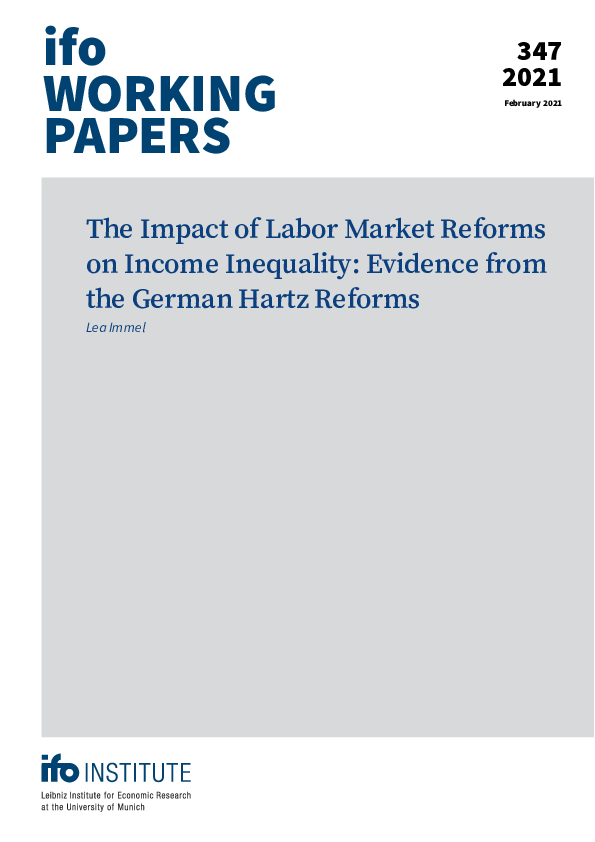The Impact of Labor Market Reforms on Income Inequality: Evidence from the German Hartz Reforms
ifo Institute, Munich, 2021
ifo Working Paper No. 347

In this paper, I study the distributional consequences of the German Hartz reforms, a set of four comprehensive labor market reforms implemented in Germany between 2003 and 2005. I exploit regional variation in the intensity German counties were affected by the reforms to estimate the causal effect of the Hartz reforms on income inequality. My results suggest that the Hartz reforms have led to a small increase in income inequality. Testing for potential transmission channels, I find that the increase in inequality is partly due to a direct monetary impact of the last Hartz reform, Hartz IV, on the income of households relying on government transfers. Another part can be explained by a rise in the share of transfer recipients. In contrast, the Hartz reforms did not increase income inequality via a rise in labor supply or part-time work, via an increase in (full-time) wage inequality nor via an increase in the number of income earners per household.